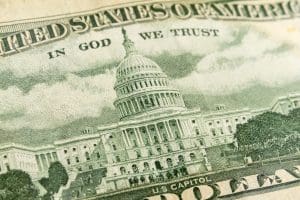The economic crisis caused by the coronavirus pandemic poses a triple challenge for tax policy in the United States. Lawmakers are tasked with crafting a policy response that will accelerate the economic recovery, reduce the mounting deficit, and protect the most vulnerable.
To assist lawmakers in navigating the challenge, and to help the American public understand the tax changes being proposed, the Tax Foundation’s Center for Federal Tax Policy modeled how 70 potential changes to the tax code would affect the U.S. economy, distribution of the tax burden, and federal revenue.
In tax policy there is an ever-present trade-off among how much revenue a tax will raise, who bears the burden of a tax, and what impact a tax will have on economic growth. Armed with the information in our new book, Options for Reforming America’s Tax Code 2.0, policymakers can debate the relative merits and trade-offs of each option to improve the tax code in a post-pandemic world.

A Holiday Tradition: Tax Extenders Slated to Expire at End of 2021
Tax extenders this year can be split into three rough groups: expiring parts of the Tax Cuts and Jobs Act (TCJA), expiring parts of various COVID-19 economic relief packages, and the Island of Misfit Extenders.
8 min read
Gift or Lump of Coal: U.S. Cross-border Tax Changes Won’t Be Home for Christmas
As 2021 comes to a close, countries are moving toward harmonizing tax rules for multinationals, but stalled talks on the Build Back Better Act in the United States means new uncertainties for a global agreement and for taxpayers.
5 min read
What Do Global Minimum Tax Rules Mean for Corporate Tax Policies?
The new OECD global minimum tax rules are complex, and some countries may opt to put them in place on top of preexisting rules for taxing multinational companies. However, countries should also consider ways to reform their existing rules in response to the minimum tax.
7 min read

Permanent Build Back Better Act Would Likely Require Large Tax Increases on the Middle Class
Policymakers and taxpayers should understand the scope of tax changes necessary to fully pay for the large-scale social spending programs that would be initiated under the Build Back Better Act.
6 min read
Patching Spain’s Tax Code Won’t Attract Investors
Spain should follow the example of Madrid, the country’s most competitive region. A more efficient income tax system is a better objective than just focusing on incentives for foreigners to change their tax residence.
5 min read
Build Back Better Budget Deficits Could Mean More Inflation, More Policy Uncertainty
As the Senate weighs changes to the spending and tax portions of the Build Back Better Act, the Congressional Budget Office (CBO) and Tax Foundation find the bill would increase the cumulative budget deficit over the next 10 years—contrary to claims the legislation is “fully paid for.”
4 min read
The Interest Limitation Pile-On
As Congress contemplates adding a new worldwide interest limitation rule as part of the House Build Back Better Act, it is useful to consider the potential effects of this proposal as well as whether it is necessary to add this on top of the U.S.’s existing restrictions on the value of interest deductions.
9 min read
Arkansas’s Sustainable Tax Reform: A Gift That Will Keep On Giving
Faced not only with immediate surpluses but with the expectation of sustained revenue growth in coming years, Arkansas policymakers have chosen to return some of the additional revenue to taxpayers in the form of individual and corporate income tax rate reductions, with additional rate cuts if future revenues permit.
6 min read
Book Minimum Tax versus Corporate Rate Increase: Pick Your Poison
While the book minimum tax is smaller in scale than the proposed original corporate rate increases, it would introduce more complexity, inefficiency, and problems at the industry- and sector-levels that a corporate rate increase would not. Neither option is an optimal way to raise new tax revenues.
4 min read